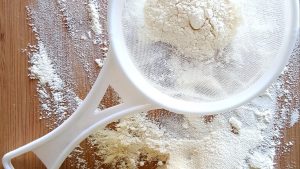The top honey brands in India failed an adulteration test conducted by environment watchdog Centre for Science and Environment, news agency PTI reported. CSE claimed that 77% of the samples that they tested were adulterated with addition of sugar syrup. 13 of the country’s top honey brands like Dabur, Patanjali and Saffola were selected for the study along with smaller companies that sell raw honey.
“It is a food fraud more nefarious and more sophisticated than what we found in our 2003 and 2006 investigations into soft drinks; more damaging to our health than perhaps anything that we have found till now – keeping in mind the fact that we are still fighting against a killer COVID-19 pandemic with our backs to the wall. This overuse of sugar in our diet will make it worse,” CSE director general Sunita Narain said while releasing the study on Wednesday.
The study checked 22 samples for purity, out of which only five passed all the adulteration tests. Some of the leading brands, whose honey failed the tests were Dabur, Patanjali, Zandu, Hitkari, Baidyanath and Apis Himalaya. Honey samples from all these brands failed the NMR (Nuclear Magnetic Resonance) test, the study said.
The only major players whose products cleared all the tests were Marico’s Saffola Honey, Nature’s Nectar and Markfed Sohna. Most smaller brands that were tested in this study were also found to be adulterated.
The watchdog also claimed that it found Chinese portals that were advertising fructose syrup which can pass adulteration tests in India. The study said that Indian standards for honey purity cannot detect the adulteration.
CSE director general Sunita Narain said they conducted an undercover operation to find out more. “Chinese companies informed CSE that even if 50-80 per cent of the honey is adulterated with syrup, it would pass all stipulated tests. A sample of the syrup that can bypass tests was then sent by the Chinese company as paint pigment to get through customs,” she claimed.






